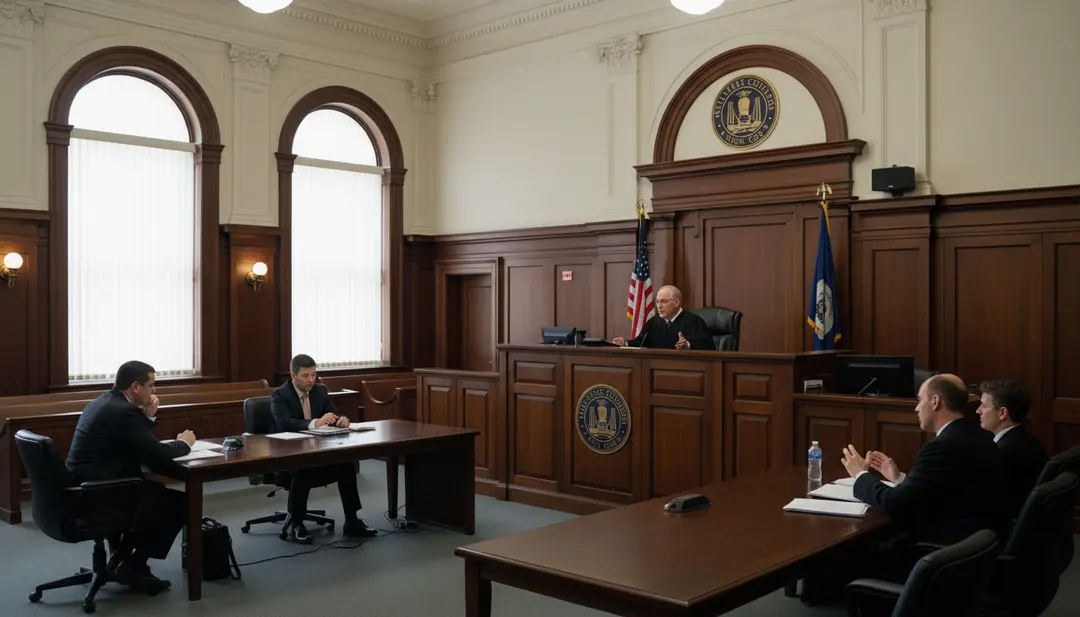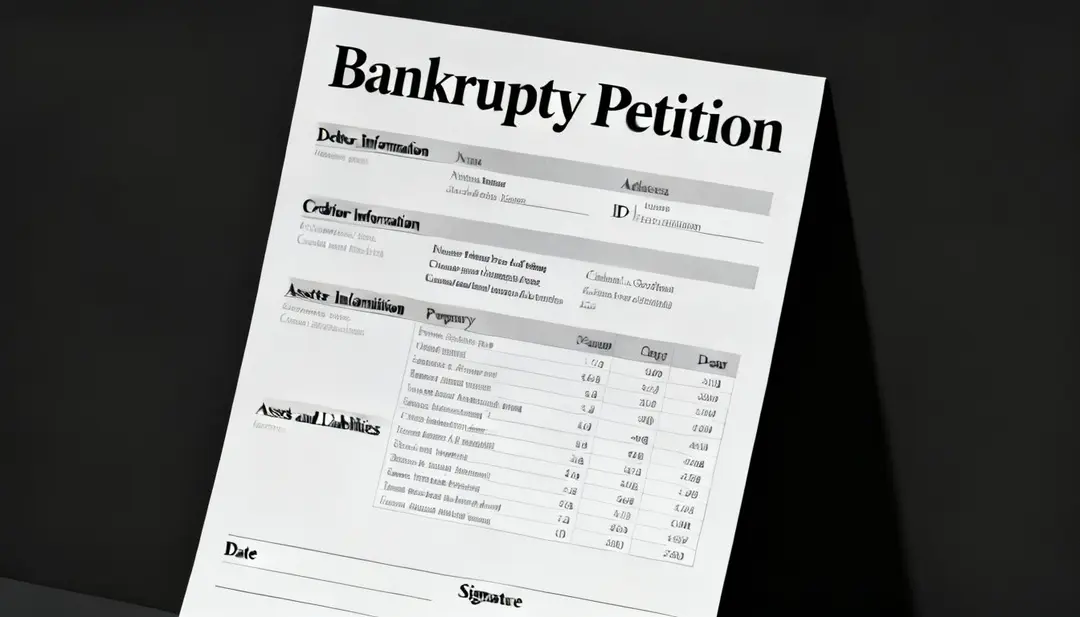Pet Rules and Fines: What Arizona HOAs Can and Can’t Enforce [2025 Guide]
Pets add character to any Arizona community, but they can also bring challenges for HOA boards and managers. You create pet rules and fines to strike a balance—supporting responsible pet ownership, protecting property values, and keeping your neighborhood safe. Knowing what’s allowed under Arizona law makes all the difference, whether you’re handling common issues or dealing with support animals.
Clear, fair policies help your association avoid disputes and lawsuits, while giving residents confidence in how the rules are enforced. If you want to see how strong guidelines can protect both board and community interests, take a look at these Arizona HOA pet policies. With guidance from an experienced Arizona HOA Attorney, Phoenix HOA Lawyer, or Tucson HOA Attorney, your board can confidently uphold rules without overstepping.
At Halk, Oetinger, and Brown, you get practical support and a flat-rate approach, so you can focus on consistency, fairness, and legal compliance—while your association remains on solid ground.
What Can Arizona HOAs Regulate When It Comes to Pets?
Every Arizona HOA sets out to keep its community peaceful, safe, and enjoyable for all residents—including pet owners and their neighbors. With carefully written pet policies, your board can set clear limits and expectations. Arizona law supports associations that stay fair and within their legal rights. Having strong Pet Rules and Fines in place helps tackle common issues before they escalate, keeping both owners and pets in check.
Here’s where most Arizona HOAs draw the line when creating pet guidelines:
Breed and Type Restrictions
HOAs in Arizona can restrict certain breeds or types of animals, especially if local ordinances already ban them. You might see rules that exclude specific dog breeds labeled as aggressive, or limits on exotic pets. These policies are intended to maintain safety, but they must be written clearly in your community’s governing documents.
- Restrictions must apply equally to all owners.
- Fair notice matters—publish changes before enforcing them.
- Keep federal disability laws in mind. Emotional support animals and service animals have special protections, so broad breed bans may not apply in every case.
When adding or updating breed and type rules, consulting with an experienced Arizona HOA Attorney or a local Phoenix HOA Lawyer helps ensure your guidelines stay enforceable and within state and federal boundaries.
Limits on Number of Pets and Size
Associations often set limits on how many pets you can have and how large those animals can be. This can prevent overcrowding and reduce complaints over noise or property damage.
- Two dogs per household is a common limit.
- Some communities set a maximum pet weight, like 40 pounds per animal.
- Restrictions can cover both indoor and outdoor pets.
It’s important that these rules match your community’s needs and are easy for everyone to understand. Making decisions with legal support from a Tucson HOA Attorney or experienced counsel makes enforcement less risky and more consistent.
Rules About Noise and Nuisance
Noise complaints over barking dogs or disruptive pets are a leading cause of disputes. Arizona HOAs have the power to enforce Pet Rules and Fines for nuisance behavior.
Common nuisance regulations cover:
- Continuous or habitual barking, especially at night
- Pets damaging property, landscaping, or common areas
- Threatening or aggressive behavior toward people or other pets
Handling noise and nuisance problems quickly helps keep tempers cool and maintains neighborly trust. Strong rules, fair fines, and clear documentation will also protect the association if disputes end up in mediation or court. For more about community noise management and related fines, see the guide on HOA short-term rental regulations in Arizona.
Common Area and Leash Rules
Common area pet policies keep shared spaces clean, safe, and pleasant for everyone. Arizona HOAs can require:
- Leashes in all common spaces, parks, and walkways
- Immediate waste cleanup by pet owners
- Restrictions on pets in clubhouses, pools, and gyms
Clear signage and consistent enforcement discourage bad behavior. The most successful HOAs adopt rules that make sense for their unique layout and amenities. Regularly reviewing these rules, gathering homeowner feedback, and relying on Effective HOA Templates for Arizona can make the process smoother—and stand up if ever challenged.
By setting detailed policies in each of these areas, your board can deliver the clarity and consistency residents expect, while avoiding the pitfalls that drive up legal costs down the road.
What Arizona HOAs Can’t Do: Legal Limits on Pet Rules and Fines
Arizona homeowner associations set Pet Rules and Fines to maintain order, safety, and property value. Yet, legal boundaries exist on what HOAs can require, enforce, and fine. Knowing these limits protects your association from expensive lawsuits and unhappy homeowners. Let’s break down some of the most important legal stops HOAs face when creating pet policies and issuing fines.
Fair Housing Act, Service Animals, and Reasonable Accommodation
Federal law draws a firm line regarding disabilities and support animals. The Fair Housing Act (FHA) requires HOAs to allow reasonable accommodations for people with physical or emotional disabilities. This means your HOA cannot enforce a flat ban on service animals or emotional support animals, even if your Pet Rules and Fines would normally prohibit certain breeds, weights, or number of pets.
A few key points to remember:
- You can request documentation if a disability or need isn’t obvious, but you can’t demand detailed medical records.
- You can’t charge a fee or extra deposit for service or support animals.
- Breed and size restrictions don’t apply when the animal is serving a medical need.
HOAs, including those guided by a knowledgeable Arizona HOA Attorney, must apply these rules equally, without singling out or making exceptions based on personal preferences.
Arizona Law: Limits on HOA Fines and Enforcement
Arizona law puts checks in place to prevent HOAs from overreaching when it comes to Pet Rules and Fines. If your association wants to fine a homeowner for a pet violation, the following steps and limits apply:
- Written notice is required before assessing a fine. This includes a clear description of the violation and an invitation to a hearing.
- Fines must be reasonable and tied to actual harm or repeated violations. Excessive or arbitrary fines are likely to be challenged.
- Enforcement must follow your community’s published rules and procedures. Surprise rules or “hidden” policies will not hold up under legal scrutiny.
- Any attempt to ban all pets is almost always unenforceable unless specifically allowed under your recorded CC&Rs.
Associations working with a Phoenix HOA Lawyer or Tucson HOA Attorney tend to avoid common pitfalls by reviewing policies for legal compliance before enforcement. This helps you manage your community fairly and reduces unnecessary conflict.
How to Handle Disputes Legally and Respectfully
When conflicts over pets or enforcement arise, HOAs should take a step-by-step legal approach. Start with clear communication: inform the homeowner of the exact issue and expected resolution. Offer a chance for the resident to respond, provide evidence, or suggest solutions. Respectful dialogue and willingness to listen often prevent small issues from growing.
If a dispute cannot be resolved quickly, follow your association’s procedures for hearings, appeals, and, if needed, outside mediation. Always document your process thoroughly to show you have acted transparently and fairly.
Staying informed about the common causes of legal trouble helps prevent mistakes. To learn about frequent reasons Arizona HOAs end up in legal disputes, check out Common HOA Litigation Issues in Arizona for real-world scenarios and practical prevention tips.
With these steps, you keep enforcement lawful and your community relations strong, while avoiding litigation and preserving trust among residents.
Setting and Enforcing Fines: What’s Reasonable and Lawful?
When Arizona HOAs create and enforce Pet Rules and Fines, the law requires a balanced approach. Every fine you issue must be fair, supported by evidence, and follow set processes. A strong system not only keeps order but also protects your board from claims of overreach or unfairness. Let’s look at what Arizona law expects from your association when it comes to setting and collecting fines for pet rule violations.
Clear Notice and Opportunity to Respond
Before your HOA can assess any fine, Arizona law says you must first give homeowners detailed written notice. This isn’t just a formality—clear communication builds trust and reduces conflict. The notice should spell out:
- What rule was allegedly broken (with reference to your CC&Rs or rules)
- Details about when and where the violation occurred
- The amount of the potential fine and how it was calculated
- Instructions on how the homeowner can respond, explain, or dispute the violation
Your process should give residents a real chance to share their side before any penalties are finalized. Providing a hearing opportunity shows respect and ensures you aren’t just levying fines blindly. Associations that follow consistent notice and response procedures are far less likely to be challenged in court.
Documenting Violations and Evidence Standards: Highlight why documentation protects both the HOA and homeowners.
Proper documentation is your shield. Without clear records—photos, written accounts, time logs, and formal notices—your HOA risks disputes turning into expensive lawsuits.
Detailed evidence protects both sides:
- The HOA can show it enforced rules fairly and consistently.
- Homeowners can see exactly what happened and why action was taken.
- If the issue escalates, everyone has the facts to back up their case.
Good records might include incident reports from board members, photos of the violation, and logs of communication with the homeowner. Arizona HOAs who tighten up their documentation often avoid long arguments about “he said, she said.” For more on best practices with documentation and general HOA compliance, check resources like AZ Hoa Law Articles for legal perspectives and case examples.
Proportional Fines and Options for Appeal
Setting fines that are reasonable in amount helps keep your community running smoothly without creating resentment. Arizona law discourages excessive or punitive fines—your penalties should match the seriousness and frequency of the behavior. Large fines for a first-time, minor issue usually backfire, but recurring or dangerous violations may require a firmer response.
Board members should:
- Stick to fine schedules laid out in governing documents.
- Adjust fines if residents correct a problem quickly.
- Consider warnings for first offenses unless it’s a repeat or severe incident.
Equally important, every homeowner should have a clear way to appeal any fine or violation notice. An unbiased appeals process—with a chance for neutral review and board discussion—limits claims of unfairness. Relying on guidance from an experienced Arizona HOA Attorney, Phoenix HOA Lawyer, or Tucson HOA Attorney can make your appeals process both strong and defensible.
Associations that listen to feedback, make reasonable exceptions when warranted, and document every step rarely end up in avoidable legal trouble. When your Pet Rules and Fines are enforced with a clear process, everyone in your community benefits.
Building Fair and Effective Pet Rules: Guidance for Arizona HOA Boards
Strong Pet Rules and Fines work best when your association backs them with broad community support, legal confidence, and ongoing attention. By taking the time to involve homeowners in the process, seeking advice from a qualified Arizona HOA Attorney, and keeping your guidelines current, you build both trust and effective enforcement. Here’s what sets successful Arizona HOA boards apart.
Getting Community Input and Buy-In
Before setting or updating Pet Rules and Fines, it pays to listen. Homeowners are more likely to comply with guidelines when they feel included. Arizona HOAs often hold open meetings, distribute surveys, or form small working groups to encourage honest feedback.
When you bring residents into the discussion, you:
- Learn about specific pet concerns affecting your community, such as noise, safety, or common area use.
- Discover which rules matter most to the people who live there.
- Reduce pushback and boost voluntary compliance.
- Build a culture of transparency and respect.
Bring examples from other Arizona communities, and consider how lessons from topics such as Architectural Guidelines for Arizona HOAs can apply to pet policies. By showing that association rules reflect the will of the community, you help keep everyone on the same team.
Using Legal Review: Arizona HOA Attorney Insights
Drafting Pet Rules and Fines requires legal know-how. Even a well-intended policy can trigger costly disputes if it conflicts with Arizona law or federal housing protections. Consulting with a Phoenix HOA Lawyer or Tucson HOA Attorney brings real value at every step.
The right legal partner will:
- Review your draft rules for compliance with state law, Fair Housing Act guidelines, and local ordinances.
- Advise on clear language that limits ambiguity and confusion.
- Help set up procedures that protect both the board and residents, especially for hearings or appeals.
- Identify common pitfalls and keep outdated or unenforceable language out of your documents.
Working with a firm like Halk, Oetinger, and Brown, which focuses on fixed-cost and efficient legal services, ensures professional support without surprise fees. Legal review doesn’t just reduce risk—it helps your board enforce Pet Rules and Fines confidently and avoid penalties for overstepping. Check out the Impact of Local Regulations on HOAs to see how a legal review shapes enforceable community standards.
Periodic Review and Policy Updates
HOA boards that thrive never let their Pet Rules and Fines grow stale. Changes in local laws, new pet trends, and shifting community expectations all make it important to schedule policy check-ins. A regular review gives you a chance to react before small problems balloon into big disputes.
For best results, set a calendar reminder for a yearly or biannual review. During these updates, assess:
- Whether your Pet Rules and Fines are still addressing real community needs.
- If your procedures align with changes in Arizona law or recent case outcomes.
- Any new concerns or complaints from residents.
Bring legal counsel into the review process so that your policies always meet current standards. For tips on keeping all your association’s rules up to date and compliant, read this practical guide on Arizona HOA compliance tips.
A living policy gives your board the flexibility to respond—and your residents a reason to trust in fair and consistent governance.
Frequently Asked Questions About Pet Rules and Fines in Arizona HOAs
Questions about Pet Rules and Fines come up often for both Arizona HOA boards and homeowners. Getting answers isn't always simple, especially when laws change or communities have unique needs. Below you'll find clear explanations about the limits and possibilities for Arizona HOAs—based on real-world issues and legal best practices.
Can an Arizona HOA ban all pets in a community?
Most Arizona HOAs cannot ban all pets outright. Your governing documents (CC&Rs) must specifically allow for such a ban, which is rare in established communities. State law favors reasonable pet ownership, especially since complete bans often conflict with fair housing or local pet ordinances.
If your board tries to add a blanket ban, you can expect strong pushback and possible legal scrutiny. A more common (and enforceable) approach is to set reasonable restrictions—such as number, breed, or size limits—instead of total bans. When considering policy changes, review your current documents with your association attorney to avoid overreach.
Are emotional support animals and service animals treated the same in HOAs?
Emotional support animals (ESAs) and service animals are not the same in the eyes of the law. Under the Fair Housing Act, HOAs must make reasonable accommodations for both, but service animals have broader and stronger protections.
Key differences include:
- Service animals are trained to assist with specific disabilities.
- Emotional support animals provide comfort (without special training), but are still protected if a healthcare provider documents the need.
Arizona HOAs can't apply blanket pet rules or fines to these animals, even if restrictions normally apply. Any attempt to penalize for a protected support animal could bring a discrimination claim. Boards should always handle these cases carefully and, if unsure, get outside advice.
How should fines for pet rule violations be calculated?
Fines for breaking Pet Rules and Fines must be reasonable and reflect the issue’s seriousness. Arizona law expects fines to relate directly to the behavior or harm—no arbitrary penalties or surprise fees.
A good process for setting fines:
- Start with written guidelines in your CC&Rs or rules.
- Use an escalating structure for repeated or severe violations.
- Offer warnings for minor or first-time issues before assessing money penalties.
Associations often tie fine amounts to costs (like cleanup or repair) or use small, set fees for repeated nuisance complaints. Boards should consult with a Phoenix HOA Lawyer or Tucson HOA Attorney when reviewing their fine schedules for compliance and fairness.
What steps should an HOA take before issuing a fine?
Before issuing a fine, Arizona HOAs must follow a set process to guarantee fairness and legal compliance:
- Written notice: Clearly describe the violation, including date, location, and the rule broken.
- Opportunity to respond: Allow the homeowner a chance to challenge or address the problem before any fine is final.
- Document everything: Keep records of notices, correspondence, and photos or evidence if available.
Skipping steps can backfire and expose your association to disputes. A transparent, well-documented system reassures homeowners that enforcement serves everyone’s interests, not just the board’s. If you need more guidance, see expert tips for Arizona Condo Boards’ legal support.
Can a homeowner challenge a pet violation fine?
Yes, homeowners can—and should—challenge fines they believe are unfair or issued improperly. Every community must have a clear process for appeals. This includes the right to:
- Request a hearing before the board or a committee.
- Present evidence, like photos or witness statements.
- Get written decisions that explain the board’s ruling.
If a homeowner feels the process was not followed or the fine is excessive, they may seek legal advice. HOAs that respect appeal rights keep trust high and complaints low.
How can a Phoenix HOA Lawyer or Tucson HOA Attorney help with pet rules?
Working with a legal professional brings clarity and peace of mind. An experienced Arizona HOA Attorney helps you draft pet policies that match Arizona laws and protect your community.
Lawyers can:
- Spot and fix risky language in your rules.
- Advise when an emotional support or service animal accommodation is needed.
- Review and approve your fine structure, appeal process, and enforcement steps so they comply with changing laws.
Flat-rate counsel, like the service offered at Halk, Oetinger, and Brown, removes the worry of surprise legal costs, letting your board focus on consistency and compliance—not billing hours. When tricky questions about Pet Rules and Fines come up, the right legal partner helps you avoid mistakes and keep your community conflict-free.
Conclusion
Strong Pet Rules and Fines support fairness, order, and accountability in your Arizona association. When you follow clear processes and focus on consistency, your community can prevent disputes, avoid costly mistakes, and build resident trust. Legal review isn’t just helpful—it's essential to keeping rules enforceable and in step with state and federal law.
Review your current policies, act with transparency, and always give homeowners a fair path to resolve concerns. Work with an experienced Arizona HOA Attorney, Phoenix HOA Lawyer, or Tucson HOA Attorney to update your guidelines. At Halk, Oetinger, and Brown, you benefit from flat-rate legal support and deep experience in Covenant Enforcement Services and association governance.
Make it a priority to revisit your rules regularly. If your board wants to improve legal compliance or boost effectiveness, reach out to see how flat-rate counsel can protect both your association and residents. Thanks for taking the time to build a better community. If you have questions or success stories about Pet Rules and Fines, share your thoughts and help others learn.













